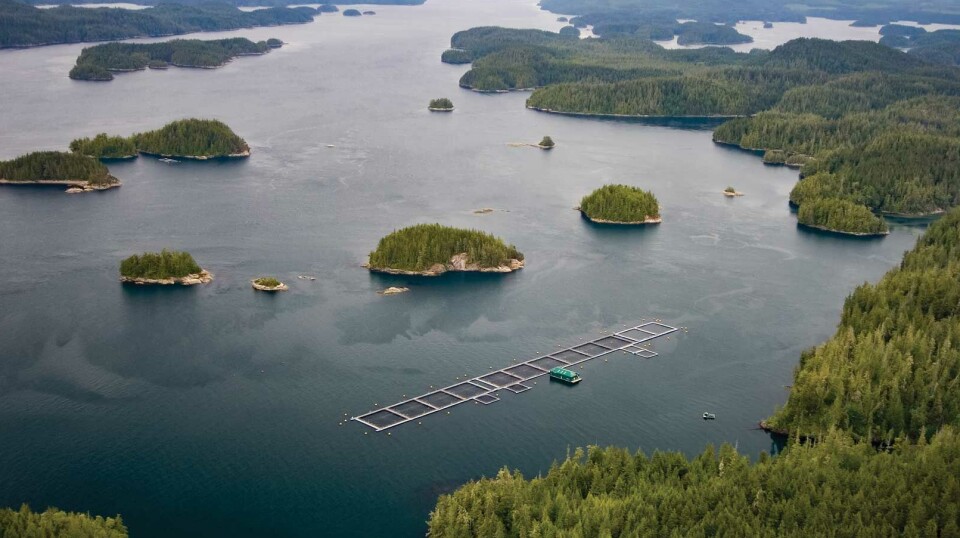
Canada invites applications for BC closed containment salmon farms
Ottawa promises 'expeditious review' of projects as clock ticks down for net pens in province
Canada’s federal government has opened the door to applications for closed containment salmon farms in British Columbia, where open net-pen farming is being phased out by June 30, 2029.
Ottawa invited licence applications in its Draft Salmon Aquaculture Transition Plan for British Columbia, which was published on Friday evening, around seven weeks after a publication deadline was missed by the government.
“Starting immediately, Fisheries and Oceans Canada (DFO) will consider new licence applications for closed containment salmon aquaculture for nine years. Fisheries and Oceans Canada will work with First Nations, other jurisdictions, industry, and other stakeholders to support the expeditious review of these applications, and consideration of support for projects which meet strict new criteria,” the draft plan stated.
However, although the Draft Plan states that closed containment technology will be required to ensure the removal of waste and filtration or treatment of discharged water, detailed regulations have yet to be defined.
Licence conditions
“Fisheries and Oceans Canada will work with subject matter experts to develop a proposed definition of, and conditions of licence for, closed containment aquaculture for marine and land-based infrastructure, which will be included in consultations,” writes the government, which is indicating some flexibility in its approach. Where appropriate, DFO will work with First Nations and aquaculture companies to develop transition approaches for individual licences and associated reporting. In some cases, mitigations (locational changes to licences, infrastructure testing or updates, plans for access to hydropower) may be required to support a transition to closed containment.
The document emphasises that First Nations are "at the core of the transition".
Right to resources
“First Nations place significant cultural importance on wild Pacific salmon and its linkages to environmental health. First Nations also highlight the need to support their rights to make decisions associated with development in their territories and to benefit from natural resource use,” the government states.
“With respect to the Transition Plan, First Nations are united in their concerns about potential negative economic impacts on Indigenous communities and business owners as the sector transitions away from open net-pen technologies, and stress the importance of ensuring that the Transition Plan provides for collaboration, engagement and opportunities for First Nations to develop approaches that address their unique circumstances within the framework of the broader intergovernmental approach to transition.”
Collaboration
It adds that transition will be achieved “through collaboration amongst federal, provincial, municipal and First Nations’ governments acting together”.
“Collectively, governments, impacted British Columbians, and First Nations in particular, will consider what supports are required for a responsible transition. This approach will enable coastal communities to plan for a successful transition and will allow First Nations to develop, tailor and implement unique transition approaches.”
More monitoring
The government says that to facilitate what it calls a responsible transition, enhanced monitoring and oversight will be in place for the next five years until the ban on open net-pens is fully implemented in 2029.
It will continue to undertake science reviews with external collaborators and at the two-year point in licences (in 2026) will undertake a review to determine if further protections should be introduced into licences.
Strict compliance measures will be applied, up to and including suspension or cancellation of licences in cases of serious or repeat non-compliance.
Disproportionate impact
The government concedes that transition is going to hurt those who rely on open net-pen salmon farming for jobs and income.
“Open net-pen salmon aquaculture in BC is an important economic driver for a number of First Nations and coastal communities. This transition will disproportionately impact some of the province’s most vulnerable populations, many of whom are already contending with a number of other challenges,” the government writes.
“This Plan outlines the broad themes which will support the transition. Impacted parties will be invited to respond and to collaborate with the Government of Canada on the themes and the more detailed measures outlined in this Plan. Consultations will take place leading to a final Transition Plan to be published in 2025. Consultation on implementation will continue following the release of the Transition Plan.”
Read the Draft Transition document in full, here.























































